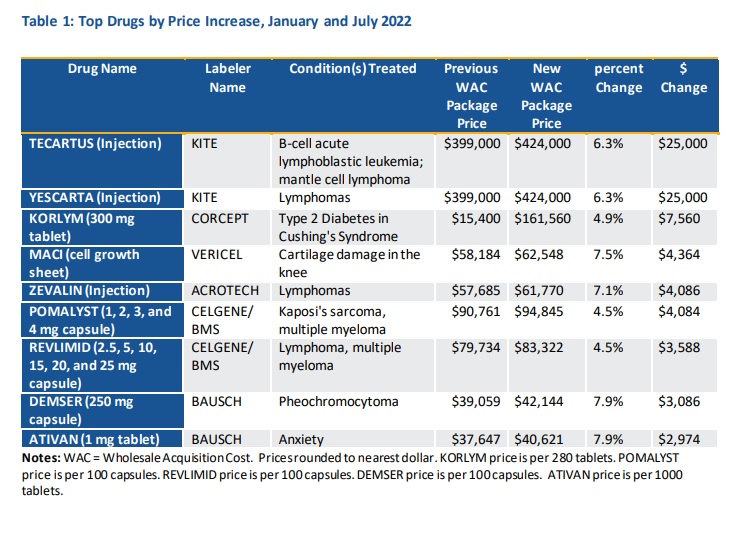Beginning October 1, biopharma companies can be charged rebates for any new drug price increases rising faster than the rate of inflation.
The new rebates are part of the newly signed Inflation Reduction Act, which introduces this new requirement that manufacturers pay rebates to Medicare for Part D drugs whose price increases exceed inflation, and in January 2023, the same will occur with Part B drugs.
The rebate system “was designed to reduce the frequency and size of drug price increases,” HHS says. The IRA also includes a provision that allows CMS to negotiate and/or cap the prices of 10 of the most expensive drugs.
While those negotiations will be limited, the rebates paid by the industry may be significant. HHS released a new report on Friday outlining what the IRA could do as more than 1,200 drug price increases from July 2021 to July 2022 exceeded the inflation rate of 8.5% for that time period. The report notes:
Most price increases occur at the beginning of January, with more than 3000 drugs experiencing a price increase in 2022, up from 2650 in 2016. The number of July price increases trended downward from 613 NDCs in 2016 to 203 in 2021, but in July of 2022, the number of increases rose to a level similar to that observed in 2016, with 601 increases.
HHS on Friday also released another report that “found a steady increase in prescription drug spending from $520 billion in 2016 to $603 billion in 2021. This increase was driven by increases in spending per prescription, and less so by increases in the number of prescriptions.”
And while the inflation-linked rebates will hit all pharma companies, HHS notes that drug spending “is heavily driven by a relatively small number of high-cost products. The cost of specialty drugs has continued to grow, totaling $301 billion in 2021, an increase of 43% since 2016.”
https://endpts.com/new-inflation-linked-drug-rebates-go-into-effect-on-saturday/

No comments:
Post a Comment
Note: Only a member of this blog may post a comment.